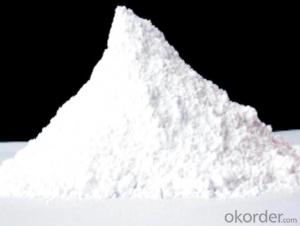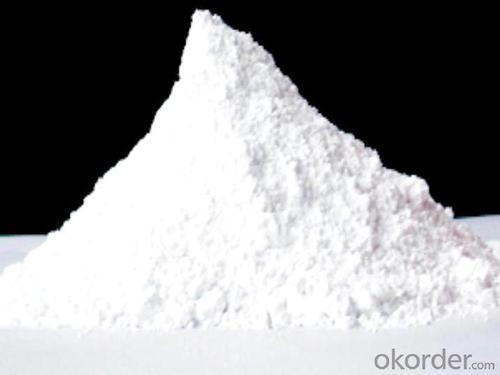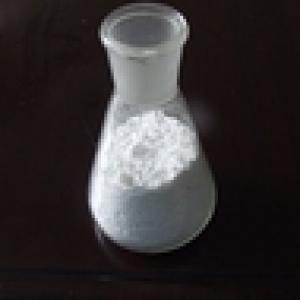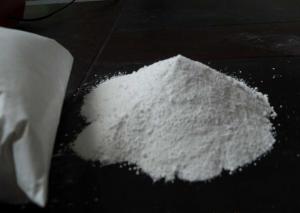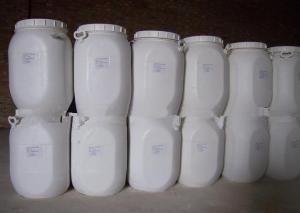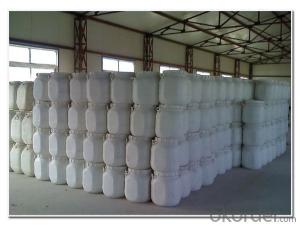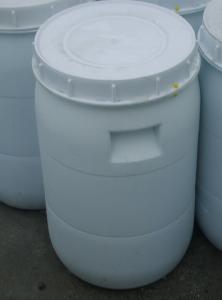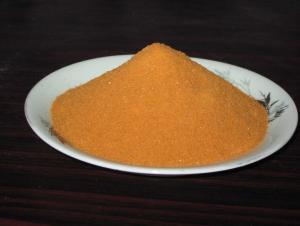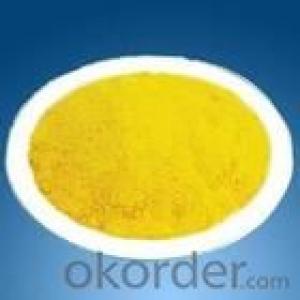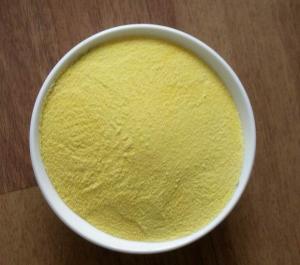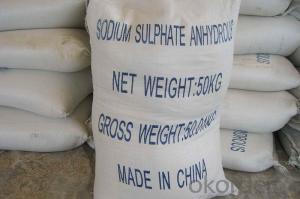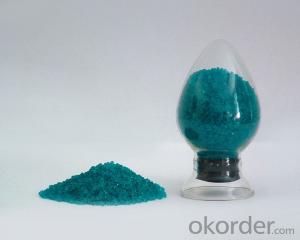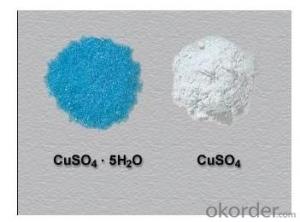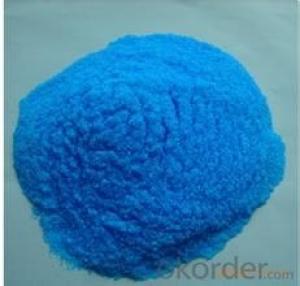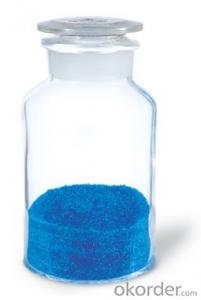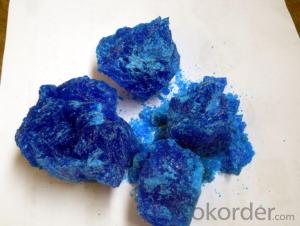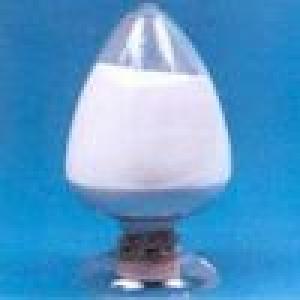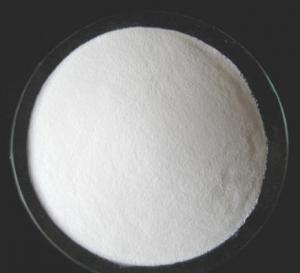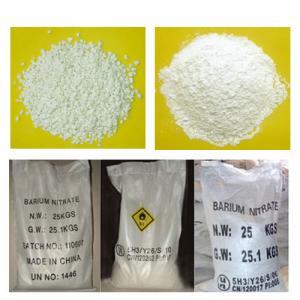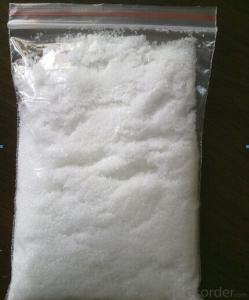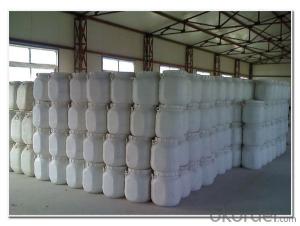sodium sulphate anhydrous 99%
- Loading Port:
- Shanghai
- Payment Terms:
- TT OR LC
- Min Order Qty:
- -
- Supply Capability:
- 1000MT m.t./month
OKorder Service Pledge
OKorder Financial Service
You Might Also Like
Specifications
min 99% ph9-11 Sodium Sulphate Anhydrous is mainly used for detergent, paper,glass, and other Industry
EXAMINE ITEM | STANDARD NUMBER | MEASURED NUMBER |
Appearance ISO Brightness |
85MIN |
87 |
PH of 1% solution | 9.0-11.0 | 9.3 |
Moisture | 0.20%MAX | 0.05% |
Purity as Na2So4 | 99%MIN | 99.1% |
Water Insoluble | 0.05%MAX | 0.02% |
Chloride as Nacl | 0.35%MAX | 0.23% |
(Ca+Mg)as Mg | 0.30% MAX | 0.02% |
Iron as Fe | 0.002%MAX | 0.001% |
Product Description
sodium sulphate anhydrous
Classification: Sulphate Type: sodium sulphate
CAS No.: CAS: 15124-09-1
Other Names: Sodium Sulfate MF: NA2SO4
EINECS No.: 231-820-9
Place of Origin: China (Mainland)
Grade Standard: Industrial Grade Purity: 99%
Appearance: White powder
Application: Detergent
Classification: Sodium Sulphate
Packaging and shipment : 25kg/50kg/jumbo/ bag Shipment: 26.95mts/20FCL
- Q: give me at least 5 substances
- an inorganic substance usually contains no C NaCl refer to salts list and an organic does usually CH4 C2H6 C3H8 C4H10 C5H12 acids usually release H+ ions H2SO4 CH3OOH HCl H3SO4 HF bases usually release OH- ions NaOH Mg(OH)2 KOH LiOH Ca(OH)2 salts are usually just ionic compounds NaCl KCl NaI KI NaBr
- Q: People do not eat salt tears with no inorganic salt
- Your body depends on sodium ions for a variety of regulation, including the transmission of nerve signals, etc., before you tears do not contain salt before you have a dog
- Q: By balancing the benefits of dietary supplementation with inorganic salts, what are the advantages and disadvantages of taking health care agents?
- Diet supplementation of inorganic salt or the nutritional needs of the human body is the normal diet of human absorption, rather than through deliberate conditioning to mobilize the body's ability to absorb (including deliberately balanced diet), that is, add inorganic salt only conventional diet Yes, no other adjustment supplement is its benefit, that is, healthy people do not need to like non-healthy state as a way to seek additional, this is his advantage.
- Q: Which solvents have some solubility in inorganic salts
- A wide variety of dyes, dissolved complex. The original dyes are organic, but some salt, some metal complexes, some of the larger molecules of the fused ring compounds, some polymer heterocyclic compounds, in some common organic solvents in the solubility is better than disperse dyes Raw dyes and oil-soluble dyes (this is actually the raw material of solvent pigments, strictly speaking, not dyes). There are basically additives in the finished dyes, such as direct dyes, acid dyes, reactive dyes, cationic dyes and other water-soluble dyes will be added inorganic salts, disperse dyes, reducing dyes will be added sulfonate sodium dispersant. In addition, the dye and other chemical products, their purity requirements are generally very low, will allow the presence of certain insoluble impurities. So the organic solvent can not be completely dissolved dye products really is very common or even a normal phenomenon.
- Q: What cells produce the collagen and inorganic salts of bone matrix?
- Inorganic Salts In Bone
- Q: Seaweed, kelp, shrimp and other seafood, the content is more of the kind of inorganic salts
- Iodine is an important material for the synthesis of thyroid hormones, the body long-term iodine deficiency will affect the thyroid hormone synthesis and thyroid development, will be endemic goiter, that is, big neck disease. Kelp, seaweed and other marine algae are rich in iodine, so eat kelp, seaweed and other iodine-rich foods can prevent big neck disease
- Q: I tried sodium and potassium carbonate and had little luck. Anyone know where to find the solubility data of inorganic salt in DMF?Thanks.
- Sodium and potassium carbonate WILL dissolve in DMF. The best way to dissolve them is to... a) dry the solid inorganic salt in an oven (> 100 degrees C) overnight. b) pulverize the powder and grind several minutes with mortal and pestle. c) sonicate the mixture for several minutes...
- Q: Eat what food can add inorganic salt
- Most of the food contains inorganic salts, the so-called inorganic salts, also known as minerals or ash. Minerals are naturally occurring compounds or natural elements in the crust. There are about 50 kinds of minerals in the human body, although they in the human body only 4% of body weight, but it is an essential part of the organism. According to their content in the body how much can be divided into constant elements and trace elements two categories. The body is actually composed of various elements (macro and trace). Many of these mineral elements are essential components of the enzyme, which can regulate a variety of physiological functions (such as maintaining osmotic pressure, oxygen transport, muscle contraction, nervous system integrity), but also tissue and bone growth and maintenance necessary. Some (such as calcium, phosphorus, sodium, magnesium, sulfur, chloride) content is large, while others are only trace. Human essential trace elements are cobalt (such as vitamin B12), copper, fluorine, iodine, iron, zinc, chromium, selenium, manganese, molybdenum In terms of its impact on experimental animals, nickel, tin and arsenic should also be considered necessary. Most minerals (except zinc) are widely distributed in a variety of foods and can be fully supplemented by balanced and diversified diets. However, there is a need for additional supplements to patients who have been relying on intravenous nutrition for long periods of time, infants and older persons, or because of the lack of regionalities caused by soil and water quality.
- Q: What are organic and inorganic salts?
- An organic salt is a salt containing an organic ion ( carbon atoms ) The reaction product of an organic acid and an inorganic base, for example, sodium acetate (CH3COONa) from the reaction of acetic acid (CH3COOH) and sodium hydroxide (NaOH). The Organic ion, here, is CH3COO- Inorganic compounds come principally from mineral sources of non-biological origin. The modern definition of inorganic compounds often includes all metal-containing compounds, even those found in living systems. So, Inorganic salts are salts of such elements (salts that don't contain carbon atoms) For eg: NaCl, KCl, BaCl2, Al2SO4, etc
- Q: What are the effects of water, inorganic salts, carbohydrates, proteins, fats and vitamins?
- The main physiological functions of minerals: 1. constitute the body of the material. (Such as calcium, phosphorus, magnesium is a bone, an important component of the teeth.) 2. Regulate the physiological function. (Minerals are often enzymes activators.) 3. Participate in the regulation of body fluid balance and maintain the body's acid-base balance.
Send your message to us
sodium sulphate anhydrous 99%
- Loading Port:
- Shanghai
- Payment Terms:
- TT OR LC
- Min Order Qty:
- -
- Supply Capability:
- 1000MT m.t./month
OKorder Service Pledge
OKorder Financial Service
Similar products
Hot products
Hot Searches
Related keywords
